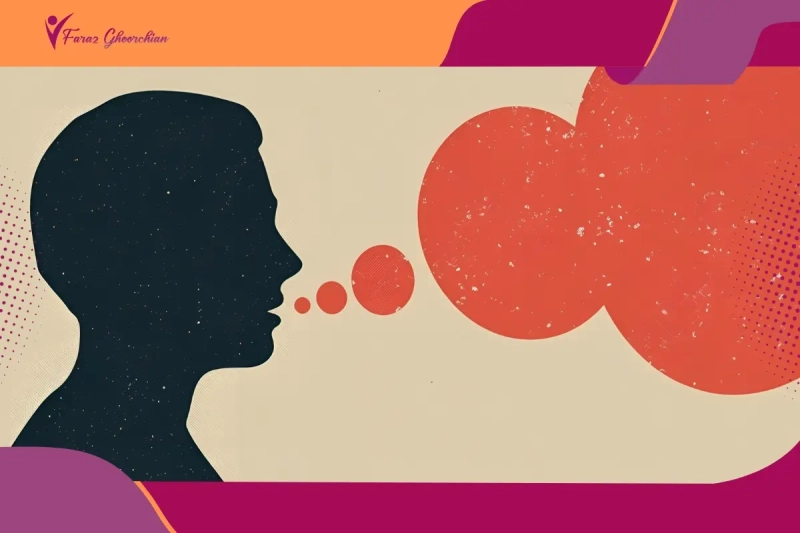Discover the effects of stress on your body, from physical symptoms to psychological effects. Learn long-term risks and practical ways to manage stress.
- 1. Introduction: Why Stress Matters
- 2. What Happens in the Body During Stress?
- 3. Short-Term Physical Symptoms of Stress
- 4. Long-Term Effects of Stress on the Body
- 5. Stress and Mental Health
- 6. Stress in Women: Special Considerations
- 7. Positive and Negative Effects of Stress
- 8. Lifestyle and Habits that Worsen Stress
- 9. Managing Stress Effects Naturally
- 10. Conclusion: Building a Healthier Relationship with Stress
Introduction: Why Stress Matters
The effects of stress on your body are often felt before they are fully understood. A racing heartbeat before a big presentation, the stomach turning during an argument, or restless nights that never seem to end are all reminders of how closely the mind and body are connected. While short bursts of tension can sharpen focus, the ongoing stress impact on health is far less helpful. It gradually weakens the immune system, disrupts hormones, and leaves behind a trail of exhaustion. Just as troubling are the psychological effects of stress, which may cloud judgment, shorten patience, or drain motivation. Recognizing these early physical symptoms of stress is key, because unchecked pressure can grow into the serious long-term effects of stress on the body, affecting overall balance and well-being.
What Happens in the Body During Stress?
Everyone has felt it at some point: the sudden rush when an unexpected deadline appears or an argument breaks out. The body reacts before the mind has time to catch up. The pulse quickens, the breath feels shorter, and the stomach may churn. These are the first physical symptoms of stress, simple signals that the body is shifting into protection mode. Scientists call it the fight-or-flight response, but in daily life it feels more like being on edge. If this happens only once in a while, the body recovers quickly. When it happens again and again, the stress impact on health becomes harder to ignore. Digestion slows, sleep becomes lighter, and the immune system is less reliable. In time, these repeated reactions show up as chronic stress symptoms on your body and can be paired with the psychological effects of stress like irritability or constant worrying. This pattern explains why many people first learn what is anxiety by noticing how their own body changes under pressure.
Short-Term Physical Symptoms of Stress
When stress hits, the body rarely stays quiet about it. The heart starts to race, breathing feels shallow, and muscles tighten without warning. These are among the clearest physical symptoms of stress, and almost everyone has experienced them at some point. For some, it shows up as a sudden headache that seems to come out of nowhere. Others may feel their stomach twist or their hands begin to shake. These quick changes are often described as symptoms of stress leaving the body, but in reality they reveal how quickly pressure disrupts normal balance.
Short bursts of tension usually pass, yet they can leave behind fatigue or irritability that lingers through the day. Women sometimes notice unique reactions such as irregular cycles or skin breakouts, which highlight the different symptoms of stress in women. Ignoring these signals may eventually make a person feel as if they are falling ill. That uneasy feeling is part of the early signs you are sick from stress, and noticing them early can make the difference between temporary discomfort and deeper problems later on.
Long-Term Effects of Stress on the Body
Living with stress for weeks or months is very different from having a rough day. The body starts to carry that weight in ways that often go unnoticed until health problems show up. The long-term effects of stress on the body are gradual, sometimes quiet at first, but they build over time. People may think they are just tired or catching colds more often, yet the truth is that constant pressure slowly wears down natural defenses.
Some of the more common changes include:
- The stress and immune system connection makes people more vulnerable to infections
- Digestive problems that range from heartburn to ongoing stomach pain
- A higher chance of developing heart issues, including high blood pressure
- Breakouts, rashes, or hair loss that appear during stressful months
- Sleep that feels broken or never fully refreshing
- Emotional struggles that may turn into lasting anxiety or depression symptoms
These examples show how the stress impact on health extends far beyond mood. Over time, everyday worries can turn into chronic stress symptoms on your body, shaping both physical well-being and emotional balance.
Stress and Mental Health
Stress does not just show up in the body. It reaches the mind in ways that are sometimes harder to notice. A person might find themselves replaying arguments, forgetting what they went into a room for, or lying awake at night unable to turn thoughts off. These are the psychological effects of stress, and they can make ordinary days feel heavier than they should.
The longer pressure lasts, the stronger the link between stress and mental health becomes. It can shift mood, shorten patience, and slowly drain motivation. Some people start to feel ongoing anxiety that never seems to ease. Others describe how the effects of stress and overthinking make even small problems feel unmanageable. What matters most is spotting these patterns early. Protecting the mind, whether through rest, support, or simple daily habits, is as important as treating the body.
Stress in Women: Special Considerations
The effects of stress on your body do not look the same for everyone. For women, biology often adds another layer. Hormonal changes during the month, pregnancy, or even the transition through menopause can change how stress feels and how long it lingers. That is why the symptoms of stress in women sometimes look very different from those seen in men.
Some examples people often notice are:
- Menstrual cycles that become irregular or more painful than usual
- Trouble with fertility or added risk during pregnancy when stress stays high
- Breakouts or hair thinning that appear after weeks of tension
- Mood swings and irritability linked to the psychological effects of stress
- Health problems that build slowly, showing the long-term effects of stress on your body
Knowing what can stress do to a woman’s body helps highlight how important early care really is. Paying attention to these signals can prevent chronic stress symptoms on your body from settling in and protect both physical and emotional well-being.
Positive and Negative Effects of Stress
The effects of stress on your body are not always harmful. In small doses, stress can act as a natural motivator, giving energy to finish tasks or focus during important moments. This is often overlooked because the negative effects of stress receive most of the attention. Still, both sides exist, and knowing the difference helps people understand when pressure is useful and when it becomes damaging.
Some positive effects of stress include:
- Short bursts of alertness that sharpen focus at work or during exams
- Extra motivation that can push someone to meet a deadline or achieve a goal
Some negative effects of stress include:
- Ongoing chronic stress symptoms on your body that lead to fatigue and illness
- A weakened stress and immune system that increases the chance of infections
- Emotional problems linked to the psychological effects of stress, such as mood swings and overthinking
Balancing these outcomes shows why learning practical habits, like following Tips to Sleep Better at Night, is key to managing stress in healthy ways.
Lifestyle and Habits that Worsen Stress
It is not always the big events that leave people drained. The effects of stress on your body often come from little patterns that build up quietly, day after day. A late night here, an extra cup of coffee there, and soon the body is carrying more tension than it can let go of. These choices seem small, but they often explain why chronic stress symptoms on your body keep coming back.
Some bad habits for adults that make stress worse are:
- Staying up too late or scrolling in bed, which makes deep rest harder to reach
- Leaning on caffeine or alcohol to cope, even though they keep the system on edge
- Eating in a rush or skipping meals, leaving digestion unsettled and the stress and immune system weaker
- Letting movement slip away, so the body has no outlet for pressure
- Getting stuck in circles of thought, where the psychological effects of stress grow heavier
When people notice how much these patterns shape the stress impact on health, it becomes easier to change one or two and feel a real difference.
Managing Stress Effects Naturally
The good news is that the effects of stress on your body do not have to control daily life. While medication or professional therapy may be needed in severe cases, many people find that simple natural approaches make a big difference. The first step is noticing the signs, because ignoring chronic stress symptoms on your body often allows them to grow.
Breathing exercises and meditation are easy ways to calm the nervous system. Just ten minutes of slow breathing can lower heart rate and ease the psychological effects of stress. Regular movement helps as well. A walk outdoors, stretching, or even light exercise clears tension and supports both stress and mental health. Nutrition matters too. Foods rich in magnesium, omega-3s, and antioxidants strengthen the stress and immune system, making recovery easier.
Small lifestyle changes add up. Reducing screen time before bed improves rest, while keeping a journal helps release the effects of stress and overthinking. Support from friends or groups can also make challenges feel lighter. For anyone wondering How to Be Less Stressed, the answer often lies in these small, steady routines. Knowing when to seek professional guidance is just as important, but building daily habits that restore balance remains the foundation of managing stress effects in a healthy way.
Conclusion: Building a Healthier Relationship with Stress
The effects of stress on your body are real and they show up in different ways. Sometimes it is a racing heart or a restless night, other times it is the quiet exhaustion that never fully goes away. Stress will always be part of life, but the way it is handled decides whether it becomes useful or harmful. When ignored, it often turns into chronic stress symptoms on your body that wear down health and mood.
Noticing the psychological effects of stress early makes it easier to step back and reset. Simple choices like resting better, moving more, and eating with care give strength to the stress and immune system. Just as important is calming the mind and breaking the effects of stress and overthinking before they grow heavier. A healthier relationship with stress does not mean removing it completely, but learning how to manage it so balance and well-being stay within reach.















